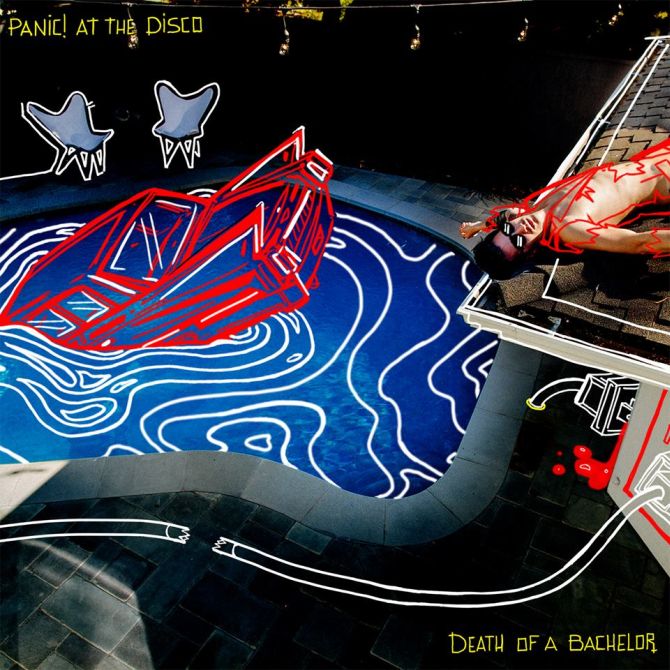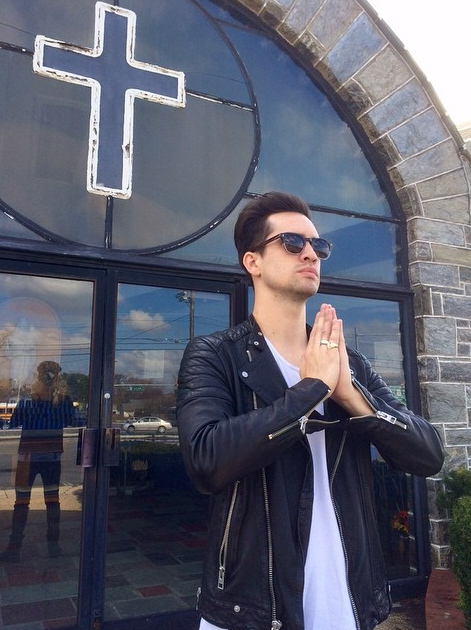What does "Impossible Year" by Panic! at the Disco mean?
My explanations aren't usually this quick, but I wanted to make sure that I did explain all of the songs from Panic! at the Disco's Death of a Bachelor album. Thus, without much fanfare or introduction, I present my line-by-line explication of "Impossible Year."
Explanation of the Lyrics of "Impossible Year" by Panic! at the Disco
"Impossible Year" is about a sense of hopelessness in three different places: the environment, relationship with friends, and romantic relationships. Brendon Urie seems to use this song as a symbolic eulogy for the album's titular bachelor who has now died. Maybe the bachelor will rise up again, or maybe symbolically the bachelor dying is a good thing and the transition is difficult, but Urie gives us no hints, and I'm left believing that this song isn't part of some grandiose story but is instead a rumination on the lesser themes of life, the themes that remind us of death and the ends of things.
This makes it especially appropriate that Urie saves this song for the end of Death of a Bachelor. In a sense, "Impossible Year" borders being a meta recognition of the end of the album as it bemoans darkness and finality. Whatever the purpose of this song, it's a reminder of how bad things can be and perhaps will remind some of us to cherish good times while we have them. The title "Impossible Year" also suggests that bad times only last for so long and then are over. Perhaps those bad times are now over for Urie or perhaps they are starting for someone else.
Whatever the case, "Impossible Year" captures that feeling and preaches to us Urie's empathy and his ability to understand how we all--every human to live--feels at least some of the time.
In the First Verse, we hear about darkness in the environment, which translates to a broad general depression that affects everything around it. Urie sings that "[t]here's no sunshine" and "[o]nly black days and sky grey / And clouds full of fear." These problems "won't disappear" and bring only a steady stream of dreary oppression.
Panic! at the Disco - Brendon Urie
In the Second Verse, Urie sings about being alone while still being surrounded by hurtful people. He sings that "[t]here's no good times / . . . / Just a beachfront of bad blood." Friends have been fighting and now hold grudges. Urie tells us that "[a]ll the guests at the party / They're so insincere / They just intrude and exclude." There's no way to make this social group work--the people in it are always fighting and can't be reconciled.
In the Third Verse, Panic! at the Disco tells us about the hopelessness in a romantic relationship: "There's no you and me / . . . / Only heartache and heartbreak / And gin made of tears." Urie is distraught because of the "[t]he bitter pill I swallow / The scars souvenir / That tattoo, your last bruise." Within this story he's telling, he remembers the woman he loved and is sad she's gone.
"Impossible Year" finishes with lines like "There's never air to breathe" and "These nightmares always hang on past the dream." It's a depressing song and reminds us of how bad things can be. The last stanza particularly reminds listeners that life can be difficult in three areas: "There's no sunshine / There's no you and me / There's no good times / This impossible year"--general life, romance, and friendships. Life can be difficult, and Urie knows it.
Panic! at the Disco - Brendon Urie
However, what he wants us to do with this information, we don't know. But based on songs like "The Emperor's New Clothes" and "Victorious," perhaps he (in a rather Nietzschean twist) wants us to keep on fighting. In the end, it may all be meaningless and there may be "no good times," but we should make our good times while we can and enjoy what we can while we still have it and keep soldiering on despite the obvious chaos around us.
[As a Christian, I disagree with this possible meaning's validity and think there's good news beyond this and that life really is more meaningful than all that (email me at jugglingcliff@gmail.com, and I can explain it), but this is my best guess as to what Urie is saying or at least at some of the philosophical background he comes from.]
What do you think? I'd love to hear your opinions on this stuff and to know what you think about Urie's opinions as well as life. Is life, like Hobbes says, "nasty, brutish, and short"? I'm looking forward to talking it over with you.







